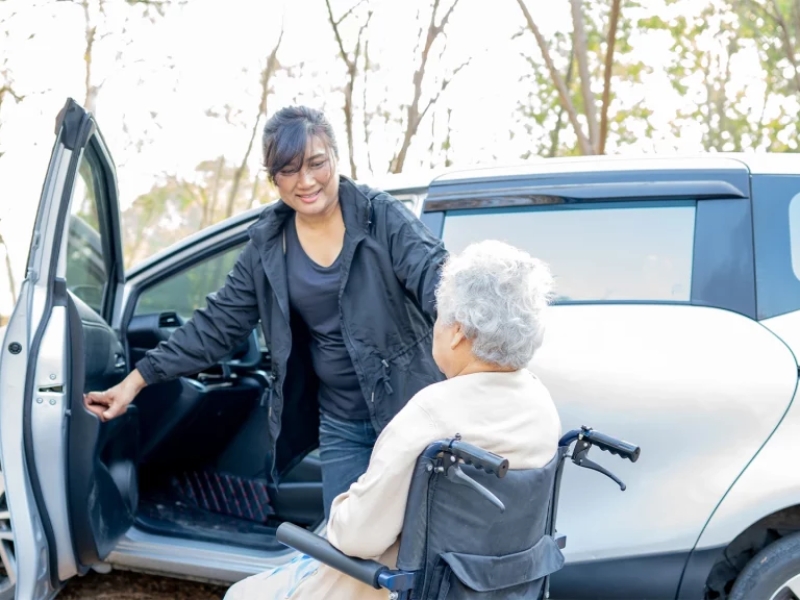Getting around independently isn’t always straightforward — especially for NDIS participants living in Sydney. Every day travel often involves more than just jumping on a bus. Things like limited accessible vehicles, time constraints, and unclear coordination with services can make even short trips feel out of reach. These roadblocks don’t just cause delays — they affect confidence, autonomy, and overall quality of life. But with the right kind of support, transport can empower rather than limit. This article explores how assistance with transportation can open doors to independence, connection, and control over daily choices.
What challenges do NDIS participants face with daily travel?
For many NDIS participants, transport isn’t just a matter of booking a ride. It’s a daily juggle of logistics, service gaps, and the real limits of accessibility. Here are the primary issues participants commonly encounter:
- Limited availability of accessible transport services means planning ahead is often necessary — and stressful.
- Public transport sometimes lacks physical accommodations, like ramps or trained staff who understand diverse needs.
- Trying to align rides with support worker schedules can lead to last-minute changes or missed appointments.
- Ongoing costs of specialised or private options can add up quickly, especially with regular travel.
These barriers don’t just make getting places harder — they can stop people from trying altogether.
Why is reliable assistance with transportation often hard to access?
Although transport assistance is available, actually accessing it can be a different story. Systems often look good on paper but don’t always work smoothly in practice. Here are the main reasons this support remains difficult to secure:
- Some regions still have limited services, especially further from city centres, where options dry up fast.
- Disconnection between providers and transport services leads to confusion, delays, or no-shows.
- Support workers may be spread thin, meaning transport isn’t always available when needed.
- Navigating NDIS transport funding can be unclear — many participants are unsure what they’re eligible for or how to claim it.
It’s not about a lack of effort. The problem is that the current setup often leaves people feeling stuck.
Could a lack of assistance with transportation increase isolation?
Yes — when travel isn’t reliable, it becomes harder to stay connected. The knock-on effect? Many participants start missing out on more than just the journey. Here are the social impacts that can arise from inadequate transport support:
- People may stop attending community groups or events due to transport worries or uncertainty.
- Important appointments — medical, therapy, or job-related — get missed, affecting overall wellbeing.
- Work and volunteering can seem out of reach, limiting chances for growth and confidence-building.
- Relying on family or carers for lifts can strain relationships and reduce independence.
Programs aimed at safe and accessible transport for people with disabilities help close this gap. They make it easier to stay engaged — not isolated.
In what ways does assistance with transportation support daily living?

When transport works, everything else becomes more reachable. Good support helps participants keep routines, attend events, and feel confident moving through the world. Here are the most common ways it supports daily living:
- Getting to medical, work, and educational appointments on time helps keep momentum and consistency.
- Taking part in everyday social or cultural activities boosts wellbeing and a sense of belonging.
- Managing errands like shopping or going to the bank independently builds practical life skills.
- Travelling with trusted support workers or trained drivers offers safety and peace of mind.
That’s why so many NDIS participants are looking to consider assistance with transportation support for daily living activities — because even small improvements in mobility can have a big impact.
Does assistance with transportation improve NDIS accessibility?
Absolutely. When transport barriers are reduced, the whole NDIS experience becomes more effective and personalised. Access opens the door to more choice, control, and consistency. Here are the ways transport improves NDIS plan outcomes:
- Helps reduce missed appointments or cancellations, keeping plans on track and supporting consistency.
- Expands options beyond local providers, offering more flexibility in choosing who and what works best.
- Increases participation in support programs, giving clearer data and insights for plan reviews.
- Promotes self-management and employment by making it easier to maintain routines and responsibilities.
These benefits make the case for accessible transportation for NDIS participants as a crucial part of every support plan.
What benefits come from assistance with transportation in Sydney?
Sydney has so much to offer — from services to social life — but none of it matters if you can’t get there. Local transport solutions make a big difference, especially in a fast-paced city. Here are the key benefits specific to Sydney’s NDIS transport support:
- Access to major hospitals, allied health centres, and NDIS providers is faster and more reliable.
- Navigation through busy streets and complex routes becomes less overwhelming with proper support.
- Getting to local events or short courses becomes easier, making spontaneous plans more possible.
- Families and carers can take a step back, knowing that trusted services are helping carry the load.
That’s why improving access means more than logistics — it means improving social inclusion with reliable NDIS transport services that match the way people want to live.
Final thoughts on building independence through transport support
Independence isn’t only about the big moments — it’s also in the small, everyday things: getting to a GP appointment, seeing a friend, or attending a workshop. When transport becomes easy and accessible, people can show up where they want to be. That kind of freedom shouldn’t be a luxury — it should be part of every plan. If you’re looking for personalised, trustworthy support in Sydney, explore how Montessori Care provides trusted NDIS transport solutions that help make everyday travel smoother and more independent.
